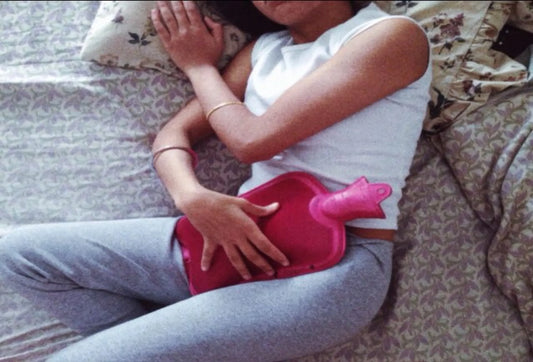
Postpartum Recovery and the Healing Power of Perinatal Yoga

Bringing a new life into the world is a miraculous and transformative experience for a woman. After the beautiful journey of pregnancy and childbirth, it is vital for new mothers to focus on their own healing and recovery. Postpartum recovery is a sacred time of physical and emotional restoration, and perinatal yoga serves as a gentle and nurturing practice to support this process. We will explore the profound benefits of perinatal yoga in postpartum recovery, offering new mothers a pathway to rejuvenation, strength, and self-care.
Restoring the Physical Body:
The postpartum period brings significant changes to a woman's body as it adjusts to its pre-pregnancy state. Perinatal yoga provides a gentle yet effective way to restore strength, flexibility, and alignment. Modified poses and gentle movements help to tone the abdominal muscles, relieve tension in the shoulders and back, and improve posture. By gradually rebuilding core strength and engaging in gentle exercises, new mothers can regain physical vitality and support their bodies' natural healing processes. Remember to wear stretchy and comfortable clothing such as sports bras and stretchy pants during any physical activity.
Balancing Hormones and Emotions:
Hormonal fluctuations during the postpartum period can lead to emotional ups and downs, commonly known as the "baby blues." Perinatal yoga offers a nurturing space for new mothers to find emotional balance and release tension. The practice incorporates breathing techniques and gentle movements that promote relaxation and calmness, alleviating anxiety and stress. By connecting with the breath and engaging in mindful movement, women can cultivate a sense of peace, inner strength, and emotional well-being.
Supporting Pelvic Floor Health:
Pregnancy and childbirth can place significant strain on the pelvic floor muscles. Perinatal yoga focuses on gently strengthening and toning these muscles, aiding in their recovery and reducing the risk of complications such as urinary incontinence. Specific exercises, such as Kegels and pelvic tilts, help to rebuild strength and restore stability in the pelvic region. By addressing the health of the pelvic floor, new mothers can regain confidence in their bodies and support long-term wellness.
Self-Care and Mindfulness:
The demands of caring for a newborn can be overwhelming, often leaving new mothers with little time for self-care. Perinatal yoga encourages women to prioritize their well-being by carving out moments of self-reflection and self-nurturing. By setting aside time for yoga practice, mothers can cultivate mindfulness, reconnect with their bodies, and foster a sense of inner peace. The practice of self-care through perinatal yoga becomes a powerful tool for rejuvenation, allowing mothers to recharge and be fully present for themselves and their families.
Building a Supportive Community:
Perinatal yoga classes provide an invaluable opportunity for new mothers to connect with other women experiencing similar journeys. These classes create a supportive community where mothers can share their challenges, seek advice, and form lasting friendships. The sense of camaraderie and understanding fostered in a perinatal yoga setting can significantly contribute to a mother's overall well-being and help alleviate feelings of isolation.
Few easy yoga poses to practice
- Child's Pose (Balasana):
This pose helps release tension in the back and shoulders and promotes relaxation. Start by kneeling on the floor, bring your big toes together, and spread your knees apart. Slowly lower your torso down between your thighs, extending your arms in front of you or alongside your body. Rest your forehead on the mat and breathe deeply, allowing your body to relax.
- Cat-Cow Pose (Marjaryasana-Bitilasana):
This gentle flow stretches the spine, releases tension, and strengthens the core. Begin on your hands and knees, with your wrists aligned under your shoulders and your knees under your hips. Inhale as you arch your back, lifting your tailbone and gaze (Cow Pose). Exhale as you round your spine, tucking your tailbone and dropping your head (Cat Pose). Move slowly and rhythmically between the two poses, syncing your breath with your movements.
- Bridge Pose (Setu Bandhasana):
Bridge Pose helps strengthen the pelvic floor, glutes, and lower back. Lie on your back with your knees bent and feet flat on the floor, hip-width apart. Keep your arms alongside your body, palms facing down. Inhale, press your feet into the floor, and lift your hips off the mat, creating a straight line from your knees to your shoulders. Hold for a few breaths, then exhale and slowly lower your hips back down to the mat.
- Gentle Twist:
This seated twist helps relieve tension in the spine and massage the internal organs. Sit on the floor with your legs extended in front of you. Bend your right knee and cross your right foot over your left leg, placing it on the floor outside your left thigh. Inhale, reach your left arm up, and exhale as you twist to the right, placing your left elbow on the outside of your right knee. Use your breath to deepen the twist, and then repeat on the other side.
- Pelvic Tilts:
Pelvic tilts help strengthen the abdominal muscles and improve pelvic stability. Lie on your back with your knees bent and feet flat on the floor. Inhale, and as you exhale, gently tilt your pelvis upward, engaging your lower abdominal muscles and pressing your lower back into the floor. Inhale again, and as you exhale, release the tilt and allow your pelvis to return to a neutral position. Repeat several times, focusing on the gentle engagement and release of the pelvic muscles.
To Conclude:
The postpartum period is a time of immense transformation and healing. Perinatal yoga offers new mothers a holistic approach to recovery, addressing the physical, emotional, and spiritual aspects of their well-being. Through gentle movements, breathwork, and mindfulness, perinatal yoga provides a pathway to renewal and self-care. Embracing this practice can empower women to navigate the beautiful but demanding journey of motherhood with strength, grace, and inner balance.







